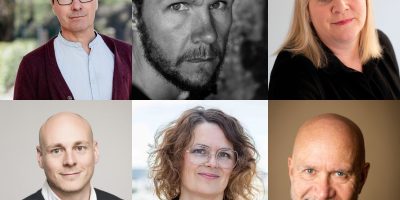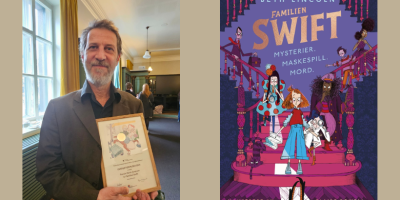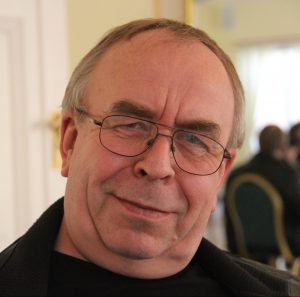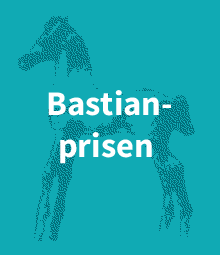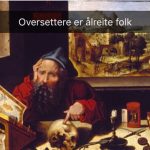Under avslutningsseremonien for den internasjonale oversetterføderasjonen FITs kongress i Berlin onsdag, ble Bente Christensen overrakt The Pierre-François Caillé Memorial Medal.
Pierre-François Caillé was the founder of FIT. The Pierre-François Caillé Memorial Medal is intended to provide recognition to individuals who have demonstrated exceptional merit in promoting the status and reputation of the translation profession at the international level. The medal may be awarded at FIT World Congresses, that is, normally once every three years, although the jury is not required to make the award at every World Congress. The recipient of the Pierre-François Caillé Memorial Medal must be a member in good standing of a FIT member. Nominations for the Medal may be made by FIT members or by individual members of such members. The FIT Council shall act as jury for this award, acting upon the recommendation of the Executive Committee. The Council’s decision requires a two-thirds majority by secret ballot.
Bente Christensen ble tildelt prisen for sitt mangeårige engasjement i FIT, som rådsmedlem, visepresident og leder av The Copy Right Committee; for sitt arbeid med opphavsrettsseminarer i forbindelse med FIT-kongresser og på forfatter- og oversettersentret på Rhodos, samt for det viktige arbeidet hun har lagt ned for å gjøre det økonomisk mulig for oversettere fra hele verden til å kunne delta på seminarer og oversetterevenementer i og utenfor FIT.
Les Bente Christensen takketale:
Dear FIT President, dear friends and colleagues,
I receive the Pierre-François Caillé memorial medal with great enjoyment and humbleness. I am honored to be among the recipients of this medal, and especially touched by the fact that it is awarded by you all, the international community of translators.
I started translating when I was young, and very soon came to regard it as an extremely rewarding activity – i.e. personally, not economically. The French author Marie Cardinal says in one of her books that in her youth she was so fond of embroidering that she sometimes would rather do that than meet her boyfriend. I feel the same way about translating – and after all these years, it is still a passion.
Gradually, I worked myself into the translators’ world, first in Norway, with my good colleagues in the Norwegian Association of Literary Translators, then internationally, with the FIT. In the board of the FIT, I learned a lot from the discussions with translators from all over the world, and I found it very valuable to feel so close to colleagues from completely different cultures.
I have participated in the translators’ organisations long enough not to idealize. I am not saying that everything is easy, that we always agree, however, we have managed to deal with our differences in constructive professional ways. I think that translators are result-oriented; we must be. In our work, we cannot just leave the words untranslated, we must find a solution. This is also what characterizes our international work. We find solutions, we are making progress together. And together we are powerful. We are used to being invisible, but our work is in fact absolutely necessary. I like to play with the thought of one day, two days, three days without any translation of any kind, anywhere – the world would fall apart.
We should find strength from this thought when we feel frustrated and are struggling in negotiations with a client or a difficult counterpart: Without translators the world would stop functioning!
Thank you very much!
Bente Christensen

 Follow
Follow
